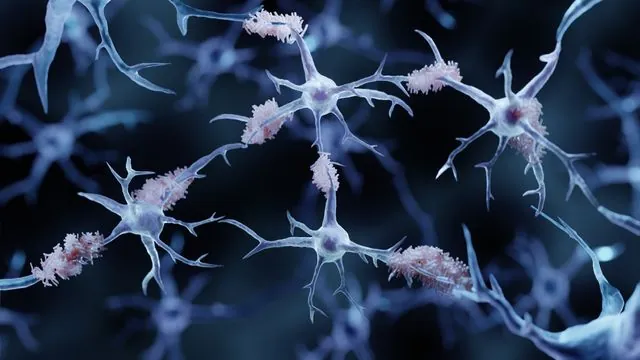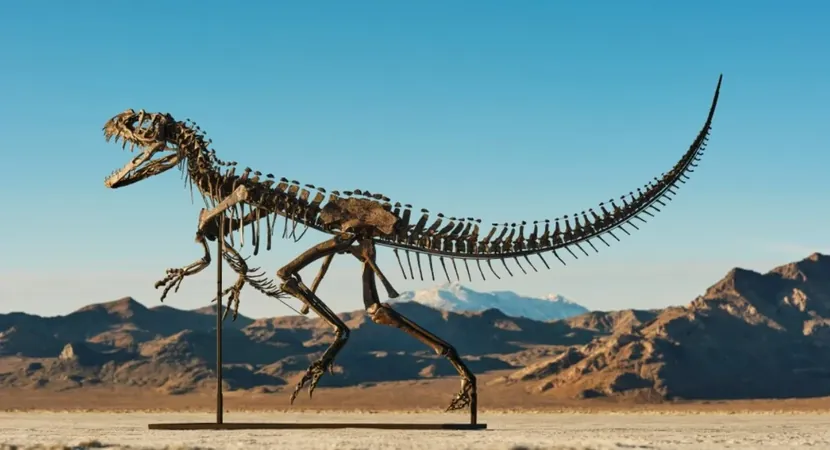
The Hidden Clock of Aging: How Epigenetic Changes Spell Frailty in Later Years
2024-12-17
Author: Yu
Introduction
Imagine there's a mysterious clock operating within your body, indicating not just your age in years but also how your cells and tissues are holding up. This internal timer, known as biological age, can differ significantly from your chronological age—the mere tally of years you've lived. When this biological age surpasses your chronological counterpart, it's termed "biological age acceleration," and it can have profound implications for your health.
The Role of Epigenetic Age
A key player in this aspect of aging is epigenetic age, which is linked to DNA methylation levels across specific genes in your genome. This biological clock can reflect your body’s true age at a molecular level, offering insights into your vulnerability to age-related diseases and your potential longevity, regardless of how many birthdays you've celebrated.
Advancements in Epigenetic Research
Recent advancements have introduced various algorithms, such as HorvathAge and GrimAge, that help estimate a person's epigenetic age accurately.
Study Insights from Monash University
A groundbreaking study conducted by researchers at Monash University over an 11-year period underscores the connection between accelerated epigenetic aging and an increased risk of frailty in older adults. Analyzing 560 Australians aged over 70, the researchers discovered a remarkable gender disparity: while women demonstrated lower epigenetic aging and better cognitive performance than men, they scored higher on frailty assessments, suggesting that they experience physical weakness along with their longevity.
Health Paradox Explored
Dr. Aung Zaw Zaw Phyo, the lead author of the study, explained: “Our findings highlight a significant health paradox: although women typically live longer than men, they frequently bear a higher burden of diseases.”
Correlation Between Aging and Frailty
As the researchers delved deeper, they found that faster epigenetic aging—especially evident when employing the latest measures such as GrimAge and DunedinPACE—correlates with heightened frailty in later life and more prominently affects women. This rapid aging process not only jeopardizes physical health but also exerts a detrimental effect on cognitive functions, especially memory.
Cognitive Decline in Aging
In the realm of cognitive decline, women with accelerated epigenetic aging exhibited notable issues in recalling information. Conversely, men faced the challenge of significantly slower mental processing speeds, which are crucial for effective decision-making. Alarmingly, findings indicated that men with accelerated epigenetic aging had nearly double the risk of developing dementia within an average of seven years.
Publication and Implications of Findings
Published in prestigious journals like GeroScience and Alzheimer's and Dementia, the study's results add a new dimension to our understanding of aging. The senior author, Professor Joanne Ryan, remarked, “We believe that epigenetic age acceleration serves as a critical marker for identifying the deterioration of both physical and cognitive functions as one ages.”
Conclusion
This research also highlights the stark differences in how aging manifests in men and women, emphasizing the urgent need for tailored healthcare strategies that address these disparities. The study opens up potential avenues for future research aimed at alleviating age-related health issues through personalized interventions. As we continue to unravel the mysteries of our biological clocks, one thing is clear: understanding the nuances of epigenetic aging is vital for forging a healthier, longer life in our senior years.




 Brasil (PT)
Brasil (PT)
 Canada (EN)
Canada (EN)
 Chile (ES)
Chile (ES)
 Česko (CS)
Česko (CS)
 대한민국 (KO)
대한민국 (KO)
 España (ES)
España (ES)
 France (FR)
France (FR)
 Hong Kong (EN)
Hong Kong (EN)
 Italia (IT)
Italia (IT)
 日本 (JA)
日本 (JA)
 Magyarország (HU)
Magyarország (HU)
 Norge (NO)
Norge (NO)
 Polska (PL)
Polska (PL)
 Schweiz (DE)
Schweiz (DE)
 Singapore (EN)
Singapore (EN)
 Sverige (SV)
Sverige (SV)
 Suomi (FI)
Suomi (FI)
 Türkiye (TR)
Türkiye (TR)
 الإمارات العربية المتحدة (AR)
الإمارات العربية المتحدة (AR)